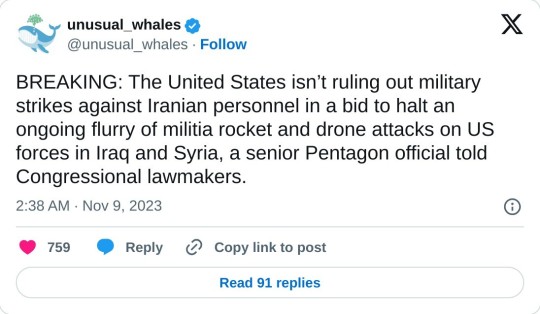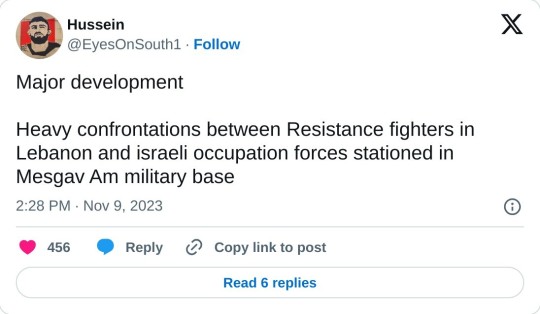#Islamic Mantra
Explore tagged Tumblr posts
Text
Rabia al Basra was one of the greatest female Sufi saints.Besides being pious she was also very beautiful and of good character so she had many suitors- including the wealthy governor of Baghdad and the Sufi saint Hassan al Basri.
She always refused their hand in marriage. When asked why she responded:
"Whenever I love anything other than Him(her Lord) he sends me a test in that very area".
In telling us this, she is not simply recounting her own experience.She is instructing us on the nature of the "dunya" (the world)
We all experiencing it...
Love towards other than Him is gonna be tested.
#muslim#islam#muslimah#islam help#muslimah motivation#islamic saying#islamic quote#deen#islamic#islampost#sufi wisdom#sufi#sufi master#sufism#love#world#know thyself#reality#haqiqa#teaching#mantra#tested#rabia#rabia of basra
9 notes
·
View notes
Text

#india#god#live#usa#uk#karva chauth#ram katha#claudia karvan#mantra#hare krishna#krishna#allah is kabir#god kabir#isa#inspiration#islam#interiors
2 notes
·
View notes
Text
Concepts of Dharma, Artha, Kama, Moksha in Puranas
Puranas deal with the four Purusharthas or goals to lead a fulfilling human life in accordance with the Vedic injunctions. Dharma (duty or righteousness), Artha (material prosperity), and Kama (sense enjoyment) are the fundamental aspects of life and are aimed at achieving the purpose of human life – Moksha (liberation).
#vaishnavism#sanskrit#veda#india#shaktism#karma#vedas#nepal#religion#yoga#upanishads#buddhism#mahabharata#bhakti#mantra#vishnu#christianity#islam#guru#brahman#hindu#jainism#faith#ahimsa#moksha#shiva#dharma#bhagavad gita
1 note
·
View note
Photo

Sadhguru copper punjabi hindu sikh singh adjustable snake healing kara bangle G
Sadhguru Pure Copper Punjabi Hindu Adjustable Size Snake Head, Round and Smooth Healing KaraFeatures:
- 100% Pure copper Bracelet
- Smooth Finish
- Good Luck Bracelet
- Medicinal/Health Benefits to the wearer
- Healing kara
- Evil eye Protection Talisman Amulet
- Positive Energy
- also used for Astrology Benefits
- Used to cure Astrological defects of Horoscope
- helpful for Yogic Mantras/Yantras
- Spiritual benefits
- Religious Values
Please note multiple photos are there to show different angles of the same item.
Only one kara will be included per sale but you can choose quantity from variation list if you need more than one Kara.
Width of Kara is 4 mm. Weight is approx. 20g to 28g variable due to size.
These Kara are adjustable but still available in four sizes Small (Kids size), Medium Size, Large and Extra Large Sizes.This KARA is Plain and SMOOTH - as shown in photos - Popular design in market right now - very famous in youngsters and we are the only seller who has this exclusive design for sale in UK.
#adjustable bangle#amulet talisman#bangle bracelet#copper kara#evil eye protection#hinduism sikhism#kada bangle#mantra yantra shield#meditation health#muslim healing#shani shukar tantar#sikh hindu islam#snake head karra
0 notes
Text

Visit our Website: https://blackkeytunes.com/
#Devotional Music#Bhakti Songs#Spiritual Music#Religious Music#Sacred Chants#Hindu Devotional Songs#Christian Worship Songs#Islamic Nasheeds#Sikh Kirtan#Buddhist Mantras#Gospel Music#Meditation Music#Traditional Hymns#Divine Melodies#Sufi Qawwali#Choral Devotions#Soulful Bhajans#Krishna Bhakti#Goddess Worship#Healing Mantras
0 notes
Note
This is maybe a stupid question but do you think there's any ties between like orientalist trends in western countries that glorify dharmic religions and Hindutva? Like I've heard 'Hinduism is the oldest religion on Earth' and 'Hinduism/Buddhism are just so much more enlightened than savage Abrahamic religions' and 'how could there be war and oppression in India? Hindus don't believe in violence' from white liberals and it certainly seems *convenient* for Hindutva propaganda, at least.
Not stupid at all! Historically, orientalism precedes modern Hindutva. The notion of a unified Hinduism is actually constructed in the echo of oriental constructions of India, with Savarkar clearly modelling One Nation, One Race, One Language on westphalian nationhood. He will often draw on Max Mueller type of indology orientalists in his writing in constructing the Hindu claim to a golden past and thus an ethnostate.
In terms of modern connections you can see the use and abuse of orientalism in South Asian postcolonial studies depts in the west that end up peddling Hindutva ideology –
The geographer Sanjoy Chakravorty recently promised that, in his new book, he would “show how the social categories of religion and caste as they are perceived in modern-day India were developed during the British colonial rule…” The air of originality amused me. This notion has been in vogue in South Asian postcolonial studies for at least two decades. The highest expression of the genre, Nicholas Dirks’s Castes of Mind, was published in 2001. I take no issue with claiming originality for warmed-over ideas: following the neoliberal mantra of “publish or perish,” we academics do it all the time. But reading Chakravorty’s essay, I was shocked at the longevity of this particular idea, that caste as we know it is an artefact of British colonialism. For any historian of pre-colonial India, the idea is absurd. Therefore, its persistence has less to do with empirical merit, than with the peculiar dynamics of the global South Asian academy.
[...] No wonder that Hindutvadis in both countries are now quoting their works to claim that caste was never a Hindu phenomenon. As Dalits are lynched across India and upper-caste South Asian-Americans lobby to erase the history of their lower-caste compatriots from US textbooks, to traffic in this self-serving theory is unconscionable.
You can see writer sociologists beloved of western academia like Ashish Nandy argue for the "inherent difference of indian civilization makes secularism impossible" and posit that the caste ridden gandhian hinduism is the answer as though the congress wasn't full of hindutva-lites and that the capture of dalit radicalism by electoralism and grift is actually a form of redistribution. Sorry if thats not necessarily relevant I like to hate on him.
Then most importantly is the deployment of "Islamic Colonization" that Hindu India must be rescued from, which is merely cover for the rebrahmanization of the country. This periodization and perspective of Indian history is obviously riven up in British colonial orientalism, see Romila Thapar's work on precolonial India. Good piece on what the former means if you've not engaged with it, fundamentally it posits an eternal Hindu innocence.
#sorry for not posting new articles tbh but these have received airtime before on this blog bc theyre good!#asks#hindutva
510 notes
·
View notes
Text






#परमात्मा_का_विधान
#divine #decree #god #allah #spiritualwarfare #faith #hinduism #islam #bhagavadgita #constitution #prayer #revival #peace #reels #reelsviral #fyp #reelsfb #manifestation #godsplan #mantra #spiritual #meditation #mahadev
#santrampalji is trueguru#santrampaljimaharaj#kabir is real god#सत् साहेब जय हो बंदी छोड की#kabirisgod#हिन्दु साहेबान नाही समजे गीता वेद पुरान#santrampaljiquotes#sant rampal ji maharaj#saintrampalji#youtube
77 notes
·
View notes
Text
There has been gradual coordinated escalation on all fronts



Reminder that a lot of their tanks are being tied up in the border to Lebanon right now.



Can't say I blame them. Israel can only claim victory over nameless Hamas commanders for so long before the settlers begin to question the lack of progress.



The Biden administration continues to prepare itself for a regional war.

Meanwhile, things continue to escalate in the West Bank



Meanwhile on the other fronts of the war







Yemen has taken credit for this attack. Israeli defense systems are failing - a missile reached Haifa for the first time, the Iron Dome misfiring at Tel Aviv, and now this

Just like how Hezbollah has forced Israel to keep 1/3 of its forces in Northern Israel (including 100 warplanes), Yemen is now taking away precious military resources that could be further to further destroy Gaza


Around the world and in America, the Biden administration continues to face pressure due to it's unabashed support for Israel. To save face, it announces useless gestures such as this. If nothing else, this proves that they've lost the propaganda war decisively in the Global South and at home because no one buys the 'Israel has a right to defend itself' mantra anymore. Even European nations, with the exception of Germany, are no longer gung-ho. They show their support quietly with only their citizens noticing, compared to October when they would make countless statements and openly suppress pro Palestine protests.

376 notes
·
View notes
Text

#muslim#muslimah#islam help#muslimah motivation#deen#islam#islamic#islampost#sufism#sufi#sufi wisdom#good things#do good#good#know thyself#goodness#mantra#way of life#good life#life lessons
12 notes
·
View notes
Text

The U.S. Air Force Temporarily Moves 17 B-1B Bombers to Grand Forks AFB in North Dakota
David Cenciotti
B-1 to Grand Forks AFB
Seventeen aircraft and 800 people will relocate to Grand Forks Air Force Base in North Dakota, while Ellsworth Air Force Base, in South Dakota, is readied for the arrival of the B-21 Raider.
Beginning this month, the U.S. Air Force will temporarily transfer 17 B-1B Lancer bombers and 800 Airmen from Ellsworth Air Force Base, South Dakota, to Grand Forks AFB in North Dakota. The relocation is expected to last about 10 months, during which Ellsworth will undertake all the works required to welcome the Northrop Grumman B-21 Raider.
While at Grand Forks, the BONEs (the unofficially nickname of the bomber, from B-One) of the 28th Bomb Wing, will still carry out their usual assignments.
According to Col. Derek Oakley, the wing’s commander, the runway work is a big step toward getting ready for the Raider. He also noted how it reflects the Air Force’s dedication to the long-range bomber program and its impact on the local community.
“The runway construction at Ellsworth is a key milestone in ensuring we’re ready to receive the B-21 Raider. This project illustrates the U.S. Air Force’s commitment to our nation’s newest long-range strike bomber and to the surrounding community.”
In a press release, the U.S. Air Force said that Ellsworth residents might see more construction-related activity, while people living near Grand Forks should expect heavier military traffic and aircraft noise as operations ramp up.
B-1B relocation Grand Forks

A U.S. Air Force B-1B Lancer assigned to the 28th Bomb Wing, Ellsworth Air Force Base, South Dakota, takes off at Luleå-Kallax Air Base, Sweden, Feb. 26, 2024, during Bomber Task Force 24-2. (U.S. Air Force photo by Staff Sgt. Jake Jacobsen)
The first two Ellsworth’s bombers are expected to arrive at their “new” base this week, ahead of the full fleet’s arrival in early 2025. Routine inspections and repairs will take place at Grand Forks, but larger maintenance tasks will be handled by the 7th Bomb Wing at Dyess AFB, Texas. From there, Ellsworth bombers were launched in Global Strike missions in Iraq and Syria: in the night between Feb. 2 and 3, 2024, they took part in the air strikes on seven facilities, which included more than 85 targets in Iraq and Syria, that Iran’s Islamic Revolutionary Guard Corps (IRGC) and affiliated militias used to attack U.S. and Coalition Forces in northeastern Jordan which had killed three U.S. soldiers on Jan. 28.
The 319th RW at Grand Forks AFB, is the headquarters operating the RQ-4B Global Hawk high-altitude, long-endurance Intelligence, Surveillance and Reconnaissance unmanned aircraft launched and flown remotely all over the world. Supporting a critical Air Force mission, sensor operators of the 319th RW analyze pattern-of-life data to help protect NATO’s eastern flank and oversee several strategically important operational areas.
Col. Tim Monroe of the 319th Reconnaissance Wing highlighted the benefits of integrating B-1 operations into Grand Forks’ existing drone-focused setup, which uses RQ-4B Global Hawks for surveillance worldwide:
“There’s no doubt integrating the B-1 community into our Grand Forks Unmanned Aerial System ecosystem will pay dividends for everyone involved. This temporary relocation is the vanguard of Air Force integration, readiness, and agile combat employment, and epitomizes the mantra of One Team, One Fight.”
Once Ellsworth’s runway upgrades are completed, the bombers and Airmen will head back home, paving the way for the B-21 Raider’s arrival in the mid-2020s.
Ellsworth was selected as the first B-21 Raider base after it cleared an EIA (Environmental Impact Assessment) report in 2021. Whiteman and Dyess AFBs in Missouri and Texas, respectively, were later designated the second and third bases for the bomber by Secretary of the Air Force Frank Kendall in mid-September.
Grand Forks was previously a B-1B base, until the bombers were relocated in 1994. In anticipation of the possible relocation, a hot-pit refueling, the first in 30 years at the base in North Dakota, was carried out by the 28th BW with support by the 319th Reconnaissance Squadron, on Oct. 1, 2024, to assess the possibility of relocating the bombers. In fact, while the majority of the physical infrastructures, including the required runway length, ordnance storage capacity, and aircraft refueling equipment, are still present, the 29th BW and the 319th RS still had to demonstrate the ability to operate the B-1B from non-home base locations.

@TheAviationist.com
23 notes
·
View notes
Text
Khwaaja Haazrat Chetak Mantra Prayog
0 notes
Text

Green Tara is a forest goddess, and in one story is shown as being clad in leaves. Her Pure Land, in distinction to others that are composed of precious gems, is said to be lush and verdant:
Covered with manifold trees and creepers, resounding with the sound of many birds, And with murmur of waterfalls, thronged with wild beasts of many kinds; Many species of flowers grow everywhere.
She is therefore a female form of the “Green Man” figure who is found carved in many European churches and cathedrals, and who is found in the Islamic traditions as the figure Al-Khidr.
“the mother of all the buddhas”
Green Tara ॐ Talon Abraxas
61 notes
·
View notes
Note
pastor park and wip in the same sentence??? girl you release some stuff
dfsajdghklhgklfhsd i don't have very much written right now beyond a basic outline, but i'll share some of what i have!!

this is my masterlist/main fic cover. i'm leaning more towards an oc instead of a reader character as of right now, but that's always open to change!
my ofc is an american (and atheist, this is relevant i swear) grad student who's moved to korea to work on her thesis, which is focused on religious pluralism in asia. basically i'm getting to write about my passion for religious studies/comparative religions while also exploring pastor park's thoughts on god, morality, and faith! and also supernatural spooky stuff
i also have plans to title each chapter after a relevant verse of scripture from multiple different faith traditions, just bc it's me and the idea makes me very happy lol
and a few excerpts from the only scene i have written as of rn, unfortunately:
When he thinks about it, he finds that he isn’t sure what he had imagined her home to look like. It was always something vague and unformed in the back of his mind – undoubtedly covered in pieces of secular media like he often sees on her person, perhaps a small space dedicated to her studies, and the rest was an unintriguing mystery he didn’t care about enough to ponder. He realizes now just how wrong he was. The first glimpse he sees over Madeleine’s shoulder is a line of Tibetan prayer flags strung across the room. Then the door opens further, she steps inside, and his breath catches in his throat. “You can sit wherever,” she says, tossing the offer over her shoulder as she starts bustling about. “Make yourself comfortable, I’ll be in and out.” He nods absently, too stunned to formulate even the simplest response. The prayer flags hang low, mostly concentrated in the area by the windows; it isn’t difficult to imagine her opening them when the weather is warm enough and letting the wind filter through. Just to the side, caught in a thick band of sunlight, is a decently sized bookcase overflowing with texts. He recognizes more of them than he would have expected – Hebrew, English, and Korean translations of Jewish and Christian scripture, mostly - but there are plenty others he doesn’t immediately recognize or that take several minutes to translate. Multiple copies of the Quran are shoved alongside books on mystical Islam and the life of the Prophet. Several faded and worn books on Sikhi, Jain Dharma, and Buddhism are folded in next to that, followed by an entire row of Hindu specific books. Titles overflow with the names of Shiva, Krishna, Hanuman, and Durga, detailing mantras, art, and temple architecture. Has she really been hiding this from him? All this time? He shakes his head in disbelief, unable to stop his jaw from going slack at the realization that he has woefully misjudged her.
8 notes
·
View notes
Photo

Wooden Yogic Beads Meditation Praying Beads Sikh Simrana Healing Bracelet CCC
Wooden Yogic beads Meditation Praying Beads Talisman Sikh Simarna Bracelet - strechable
Ref: CCC
Hindu Islamic Sikhs 27 beads + 1 head bead and beautiful tassel Meditation Prayer Simarna HEALING Mala bracelet - Ideal spiritual gift for loved ones - for Yogis, Yoga, doing bhajan, bandagi, aradhna, shabad kirtan, simran, tapasya etc.These bracelets are thought to protect the wearer from Evil Eye and works as a Good Luck Charm Amulet or Talisman.Please note only one bracelet mala per sale unless you add more by adding quantity from drop down menu. Photos are for showing details/information of item and are for guidance only.
Item may slightly vary to photos as these are hand made and every bracelet is unique. Size of each bead is 1cm and bracelet is stretchable.
Every one should own one of these. "This Masterpiece, a Pleasure to own, a delight to receive" will be a beautiful gift on Christmas or on some other occasion.
Hand Held Meditation Beads Ideal Meditation Mala for Sikhs, Hindus, Muslims, Buddhists, Yogis & many more. 27+1 Beads, Also used as:
· Mala
· Praying Beads
· Meditation Beads
Why use the Meditation Beads?
Meditation can be quite a tricky practice because the mind is like a naughty child.
By its very nature, the mind tends to wander off during the meditation practice. If ones energy is low at the time of meditation, falling asleep can result.
If the energy is too high, fantasy and distraction become the barriers. At such times, the mala provides the much needed anchor.
The mala beads are moved in rhythm with the breath and the mantra, so that both-sleep as well as excessive mental distraction-are prevented by this action upon the beads.
For wearing:
A personal mala is a wonderful accessory to meditation, which when used regularly with a personal mantra, absorbs the vibrations of the practice. It becomes like a close friend or a comfortable piece of clothing! How to Use? The mala is traditionally held in the right hand and used in two ways - in one method; the mala is hanging between the thumb and the ring (third) finger. The thumb is used to rotate the mala by one bead towards oneself with each repetition of the mantra. In the other method, the mala is hanging on any finger.Brilliant finish and very decorative. Ideal gift item for loved ones on this Christmas and New Year. Please note colour of TASSEL may vary due to availability of STOCK but if you require specific colour of tassel (shown in our photos) please let us know in message/order notes.
We will try our best to get it for you otherwise will send with random selection. We are UK based supplier #SikhArtefacts.
Items can be collected from our shop in Rochester, Kent, UK.
Postage discounts for multi-buys.Any questions please do not hesitate to contact us. P.S. Colour of item may slightly vary due to camera flash and light conditions.
https://mynembol.com/product/77x3JgiBj
#praying beads sikh#hindu muslim khalsa#yoga yogic mantra#healing medicinal#positive energy#motivational love#motivation beads#wood strechable#simrana simaran#simarna bangle#kara kada kurra#kadha tassel tasvi#islamic prayer
0 notes
Text
It’s telling that the first question I saw raised in the media after Iranian President Ebrahim Raisi was killed when his helicopter crashed in the country’s mountainous northeast on his return from Azerbaijan in May was whether the United States had a hand in it. In that same regard, among the questions raised concerning Russian President Vladimir Putin’s recent travel to Pyongyang, apart from its impact on the simmering tensions across Asia, was what opportunities his willingness to venture farther from the Kremlin offers. Namely, should the United States and its allies seek to depose Putin by enabling a coup in his absence, or assassinating him during such travels? The answer lies in assessing the risk versus gain.
What would be gained by killing Putin? If the bar was juxtaposing the status quo with the consequences of Putin’s violent removal, would Russia’s threat to the United States and its allies be degraded? Would Russian troops withdraw from Ukraine and cease posing a threat to NATO allies in the Baltics and Eastern Europe? Or might Russian intentions become even more hostile and less predictable? Despite Putin’s obsession with intrigue, denial and deception, and smoke and mirrors, he’s fairly predictable. Indeed, the United States, with Britain leaning in the same direction, was the exception among its NATO allies, not to mention Ukraine itself, in forecasting with high confidence Putin’s plans to attack.
Would the United States do it? The record shows that the U.S. sanctioned violence in sponsoring the overthrow of democratically elected antagonist regimes in Iran in 1953 and Chile in 1973, while the Church committee investigations documented multiple CIA attempts to assassinate Cuba’s Fidel Castro.
More recently, the United States made no pretense in concealing its hand in killing Iranian Islamic Revolutionary Guard Corps Quds Force Commander Qassem Suleimani in January 2020, an action that historic precedent would suggest was an act of war. Since 9/11, U.S. counterterrorism strategy has in practice been predicated on assassination. The mantra “find, fix, finish” is the other euphemism for preemptively hunting down and killing terrorists abroad before they might strike the U.S. homeland.
Left: Iranians tear up a U.S. flag during a demonstration following the killing of Islamic Revolutionary Guard Corps Quds Force Gen. Qassem Suleimani, in Tehran on Jan. 3, 2020. Atta Kenare/AFP via Getty Images Right: The statue of Iraqi dictator Saddam Hussein is toppled at al-Fardous square in Baghdad, Iraq, on April 9, 2003. Wathiq Khuzaie /Getty Images
While these episodes collectively demonstrate the U.S. government’s willingness to undertake consequential, lethal actions in the name of national security, when separated from transnational terrorist targets, only the strike against Suleimani occurred while he was abroad. Operations to depose Mohammad Mosaddegh in Iran, Salvador Allende in Chile, and Castro in Cuba depended rather on internal elements to facilitate the plots.
Apart from these episodes and a possible hand in others, U.S. governments have arguably favored the status quo of a predictable adversary. Regime change has not worked out well for U.S. interests. The overthrow of Saddam Hussein in Iraq was no small factor in bringing about the Arab Spring, with effects that continue to reverberate across the Middle East as reflected by unresolved civil wars in Libya, Syria, and Yemen, as well as ongoing political instability in Egypt and Tunisia.
The U.S. occupation of Iraq also facilitated the rise of the Islamic State. And the Taliban ultimately outlasted the United States in Afghanistan by returning to power despite 20 years of American blood and treasure, and they now give sanctuary to insurgent groups threatening Pakistan, Iran, its Central Asian neighbors, and China.
The inclination to accept the known status quo is further strengthened when that country is armed with nuclear weapons. As regards Russia, even under the most ideal circumstances in which the U.S. government could remove Putin and conceal its hand in doing so, how confident is Washington that a stable and less hostile leadership would succeed him?
In Russia, like most autocracies, power rests with those who control the nation’s instruments of power—primarily the guns, but likewise the money, infrastructure, natural resources, connections, and knowledge of where the skeletons are to be found. That power is currently concentrated within a small circle of septuagenarians, almost all of whom have long ties to Putin, the Cold War-era KGB, and St. Petersburg. The Russian Armed Forces might have the numbers in terms of troops and tools, but under Putin, as it was in Soviet days, they are kept on a tight leash and closely monitored, with little discretionary authority for drawing weapons or coming out of their garrisons.
The three organizations most capable of moving on Putin and the Kremlin are the Federal Security Service, or FSB; the Rosgvardia, or National Guard; and the Presidential Security Service within the Federal Protective Service, or FSO. The FSB is Russia’s internal security and intelligence arm through which Putin governs given its relatively massive and ubiquitous presence across all the country’s institutions. The FSB enforces Putin’s rule, monitors dissent, intimidates, punishes, and liaises with organized crime. The Rosgvardia is Putin’s brute force. It was established in 2016 from among the interior ministry’s militias variously responsible for internal order and border security to be Putin’s long red line against protests, uprisings, and armed organized coup attempts.
Alexander Bortnikov leads the FSB, having succeeded Nikolai Patrushev, who followed Putin and has served since as one of his chief lieutenants. Until recently, Patrushev served as Russian Security Council chief and was most likely the Kremlin’s no. 2, and might still be, despite having been made a presidential advisor for shipping. Bortnikov, like Patrushev, shares Putin’s world view, paranoia for the West, political philosophy, and glorification of the old Soviet empire.
Bortnikov is considered by Kremlinologists to be Putin’s most relied-upon and trusted subordinate, and in turn, the individual best positioned to overthrow him, should he desire. While Bortnikov maintains a relatively low profile, limited glimpses suggest some degree of humility and contained ambition, although uncorroborated rumors suggest health issues. His deputy, Sergei Borisovich Korolev, some 10 years younger, is regarded as effective, similarly ruthless, but perhaps too ambitious and ostentatious in his relationships with Russian organized crime. It’s likely that Putin sees a bright future for Korolev but has enough reservation to justify more seasoning and evaluation before having him succeed Bortnikov.
The roughly 300,000-strong Rosgvardia is commanded by longtime former Putin bodyguard Viktor Zolotov. Likewise a part of Putin’s septuagenarian St. Petersburg crowd, with extensive past ties to organized crime, Zolotov emerged somewhat from the shadows following then-Wagner Group leader Yevgeny Prigozhin’s June 2023 revolt. Zolotov claimed credit for protecting Moscow and mused publicly at how his organization would likely grow and secure more resources to facilitate its critical responsibilities.
Zolotov might not be as educated or sophisticated as Putin’s traditional siloviki associates, all former Cold War-era KGB veterans, but making his way up the ladder as he did from a St. Petersburg street thug, he’s not averse to using force to achieve his aims.
Little is publicly known concerning Zolotov’s politics apart from loyalty to his boss, but there’s no evidence he might offer a progressive alternative less hostile to the West. As Putin has done for all of those in his inner circle to secure their loyalty, Zolotov’s family members have been awarded land, gifts, and key posts. Patrushev’s son, for example, is now a deputy prime minister.
The FSO includes the Presidential Security Service, some 50,000 troops, and is responsible for Putin’s close physical protection. Little is known about its director, Dmitry Viktorovich Kochnev, now 60, whose mysterious official bio indicates that he was born in Moscow, served in the military from 1982 to 1984, and then went into “the security agencies of the USSR and the Russian Federation” from 1984 to 2002, after which time he was officially assigned to the FSO.
If Kochnev wanted Putin dead, he’s had plenty of time to pursue that goal, but he is unlikely to have the means and network to go further on his own in seizing power. Kochnev would still need the FSB and the Rosgvardia to accomplish the mission so would likely be an accomplice, but he would not be at the forefront of such a plot.
There are likewise a handful of others close to Putin who might influence his succession, or be the face of it, such as Igor Sechin, former deputy prime minister and current Rosneft CEO; former KGB Col. Gen. Sergei Ivanov, also a former defense minister and first deputy prime minister; and former KGB Col. Gen. Viktor Ivanov, who also had a stint as the Federal Narcotics Service director. All are known to be ideologically in line with the Russian leader and seek a restored empire unwilling to subscribe to a world order and rules created by the West that they believe aim to keep Moscow weak and subservient.
If Putin were assassinated abroad, regardless of the evidence, the old guard would likely accuse the United States and use it as a lightning rod to consolidate power and rally the public. And sharing Putin’s paranoia over the West’s existential threat, the risk is credible that they would retaliate militarily, directly, and with uncertain restraint. Believing themselves insecure, they would likewise crack down at home in an indiscriminately ruthless manner that might unleash long-contained revolutionary vigor among the population, which would throw a large, nuclear-armed power into chaos.
But could the United States do it if it wanted to? History shows that foreign leaders are not immune to assassination, as we were reminded when Slovakian Prime Minister Robert Fico survived being shot at close range by a disgruntled citizen in May. Unlike in the movies, however, assassinations are complicated, particularly against well-protected and deliberately unpredictable targets in foreign environments over which one has no control.
According to leaked documents and the account of Gleb Karakulov, a former engineer and FSO captain, Putin is paranoid concerning his safety and health. Karakulov’s observations, Putin’s limited travel, and his proclivity to cloister himself from direct contact with but a small number of insiders for his safety makes him a hard target. Scrupulous care for his movements includes the intense vetting, quarantining, and close monitoring of those involved with his transportation and his personal routine as well as in securing the cars, trains, and planes he uses. Who can forget the flurry of photos and memes surrounding the 15-foot-long table Putin used when conducting personal meetings during the COVID-19 pandemic?
For any such operation to succeed, close target reconnaissance and good intelligence are required to determine patterns and vulnerabilities on which to construct a plan. But while foreign head-of-state visits follow certain protocols and have predictable events, there are no long-term patterns within which to easily identify vulnerabilities. Other considerations include a means to infiltrate and exfiltrate the various members executing the operation as well as their tools. North Korea is not an easy place to visit let alone operate in for a foreign intelligence service to clandestinely steal secrets or conduct an observable action such as an assassination.
There are certainly additional risks when Putin or any foreign leader ventures beyond the layered, redundant, and tested security protocols enjoyed in their home cocoons. Visiting dignitaries must rely on the host government for a variety of resources and needs too numerous and costly to pack, and when doing so would offend the locals. And that extends to perimeter and route security, emergency medical support, and infrastructure integrity.
The threat to a foreign leader’s communications security, habits, health information, and that of their entourage is higher while in transit abroad—and therefore an attractive intelligence target. The multiple moving pieces and complicated logistics associated with such visits produce information that must be shared with the host governments and span agendas, itineraries, dietary requirements, flight and cargo manifests, communication frequencies, telephone numbers, email addresses, travelers’ biographic details, and weapons, to name a few.
In the era of ubiquitous technical surveillance, as the Israelis learned firsthand when Mossad agents assassinated Hamas official Mahmoud al-Mabhouh in 2010, going undetected in any city is no small feat. Mabhouh’s killing was largely captured on CCTV. The Dubai investigation identified as many as 28 operatives who were involved, almost all of whom were revealed through technical means or the leads they generated.
Still, whoever assassinated Lebanese Hezbollah’s notorious international operations chief, Imad Mughniyah, in Damascus in February 2008 and al Qaeda deputy Abu Muhammad al-Masri in Tehran in 2020 managed to mount complex attacks in highly restrictive police states. Of course, neither moved about with a protective detail, let alone that which would surround a head of state.
Israel managed to assassinate Iran’s top nuclear scientist, Mohsen Fakhrizadeh, in November 2020 in Iran despite a protective detail—although it was an operation that might have been taken from a science fiction movie involving automated robotic machines guns controlled from afar.
Then again, even with the best-laid plans for protecting Putin, one weak link could be the Russian leader’s self-imposed vulnerability, depending on the aging and problematic Soviet-designed Ilyushin Il-96 series jets he uses, as he did in recent travels to North Korea and Vietnam. Even if Russia builds and updates the replacement parts, there is long-term structural fatigue and limitations when trying to reconfigure so old an airframe design.
While there’s arguably an element of Putin’s pride in wishing to use Russian equipment, I suspect his inclination is driven more by paranoia for what adversaries might implant on his transport that prevents him from adopting newer Western aircraft, as his country’s commercial airlines have.
There are also significant bureaucratic hurdles to lethal operations. For the moment, at least, the U.S. practice of covert action is dictated by the rule of law. These are primarily executive orders rather than public laws, like EO 12333, which ironically forbids assassination, and the various presidential memos issued by Barack Obama in 2013, Donald Trump in 2017, and Joe Biden in 2022 guiding the use of “direct action,” the euphemism for drone strikes and other kinetic operations, against terrorist targets outside of conflict zones. But while the United States killed Suleimani as a terrorist who fit these guidelines, killing foreign leaders based on credible intelligence reflecting their ongoing efforts to do harm to the United States would reasonably still meet the legal bar for preemptive self-defense.
When it comes to killing Putin or any prominent adversary, the biggest challenge is not necessarily if it can be done, but whether it should be done. Openly killing Suleimani posed risks, of course, but ultimately, Iran is not an existential threat. Its retaliation could have been more costly, had Tehran chosen escalation, but still manageable.
Russia, on the other hand, as Putin frequently reminds the West in his saber-rattling speeches threatening nuclear war, is another matter. What happens if you fail? As The Wire’s Omar Little said, paraphrasing Ralph Waldo Emerson, “When you come at the king, you best not miss.”
15 notes
·
View notes